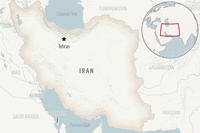A new study found that airmen who flew and maintained the C-123 Provider long after the planes were used to spray Agent Orange over Vietnam were exposed to dangerous levels of the dioxin that remained in the aircraft.
A report in Environmental Research titled "Post-Vietnam Military Herbicide Exposures in UC-123 Agent Orange Spray Aircraft" found that environmental testing of the planes revealed traces of dioxin levels above the Defense Department's own standards for maximum permissible exposure to poisonous chemicals.
The American Legion used news of the report's findings to reiterate its call for the Department of Veterans Affairs to extend disability compensation benefits to former C-123 aircrews and maintainers. The Legion first announced its support for the approximately 1,500 C-123K vets in a resolution passed in August 2012 at its annual convention in Indianapolis.
"The Legion is committed to ensuring that veterans receive the benefits they deserve," American Legion National Commander Daniel M. Dellinger said on Monday. "We will work with Congress and the VA to promptly designate C-123K aircraft as Agent Orange exposure sites, thereby qualifying veterans who worked with these planes to be eligible for Agent Orange-related benefits."
C-123 Providers were used for troop and supply transport. It was also as a part of Operation Ranch Hand during the Vietnam War. Ranch Hand was the defoliation mission that ran from the early 1960s to about 1971.
The study reported on in Environmental Research was lead by Jeanne Mager Stellman, a professor at Columbia University's Mailman School of Public Health. The Legion said that Stellman worked with it in the early 1980s, when the organization was trying to prove the link between exposure to Agent Orange and serious health issues among Vietnam veterans.
Under increasing pressure from the Legion and other veterans' organizations, including Vietnam Veterans of America, Congress finally passed the Agent Orange Act of 1991, which set in motion a government study that linked exposure to the dioxin to multiple health problems.
In 2010, VA Secretary Erik Shinseki expanded the number of health problems that are presumed to be linked to Agent Orange exposure, a move that immediately brought in hundreds of thousands of new claims for disability compensation from Vietnam veterans.
Stellman, in the Legion's announcement Monday, is quoted as saying the latest study "should provide the evidence needed for post-Vietnam veterans to receive the same health treatment as in-country veterans.
"They need and deserve it," he said.
- Bryant Jordan can be reach at bryant.jordan@monster.com




























